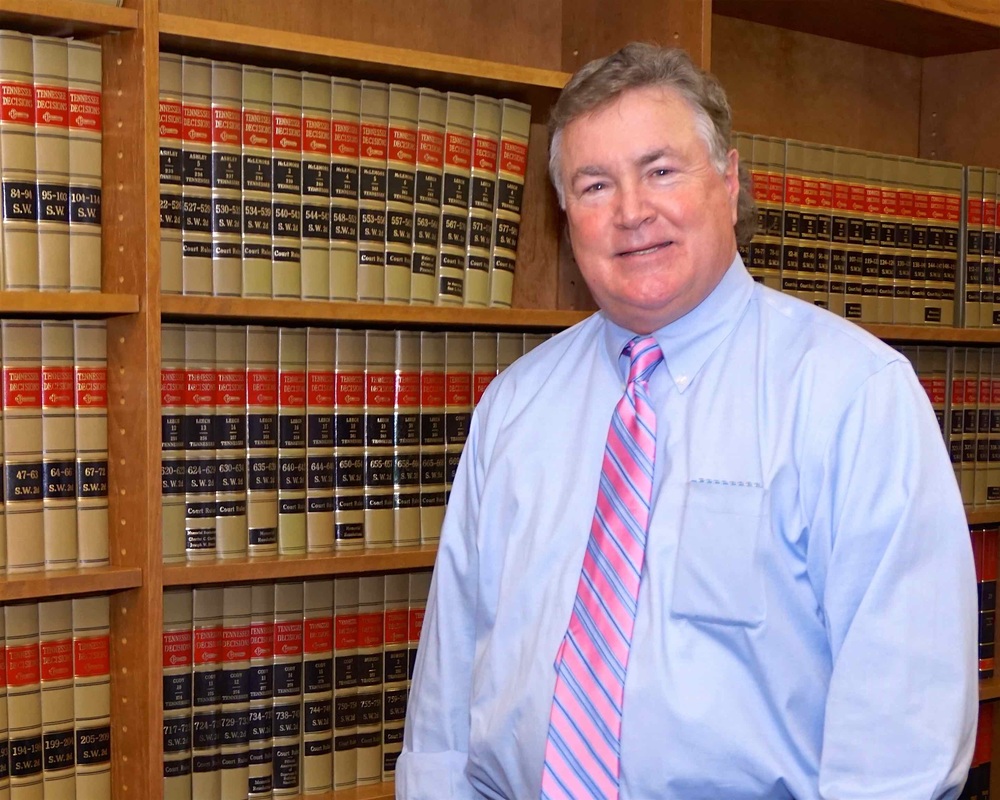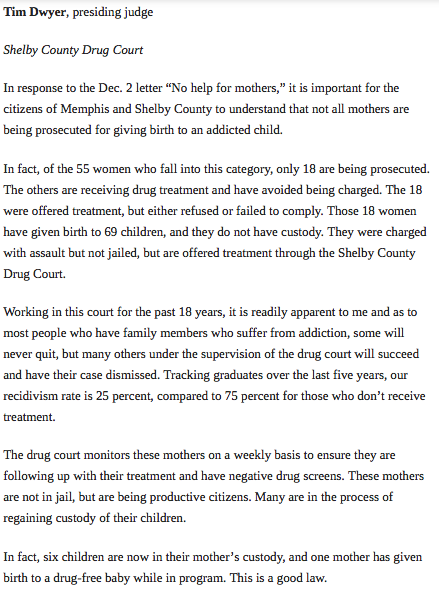“A lot of people who come into Drug Court don’t necessarily want to quit doing drugs, but they’ve got a charge over their heads and don’t want to go to jail. That’s all right. But what we’ve found is that, once they get into the program and the drugs get out of their system, they start thinking more clearly. They start thinking about the negative impact they’ve had on their family and friends and loved ones, and they start buying into it. Not all of them, but quite a few do. Now if a person is a big-time drug seller, we just go the traditional route. And violent offenders don’t have the option of drug court. But if a person has a non-violent drug (or drug-driven) charge, we can take it. For instance, we would accept somebody who was arrested for stealing from Walmart to get money for drugs or a lady selling her body to get money for drugs, but we can’t take a violent offense like armed robbery. The drug court program is 12-18 months, depending on the severity of the charge, and involves intensive treatment and frequent court appearances so we can monitor how they’re doing. At the end there’s a graduation. We give them a diploma and some other things, but one thing we give them is their mug shot from the time of their arrest. We don’t do that to embarrass them, but we want them to keep it close by in case they think about relapsing. They can look and see where they were then and where they are now. It’s amazing the changes in people who go through the program: their attitude, disposition, appearance, everything changes. That’s rewarding and encouraging.
“I have hundreds of success stories, but two in particular stand out to me. Both of these individuals were addicts, they went through the drug court program, and both of them work for me now, one as a drug counselor and the other as a secretary. They went from one extreme to the other.
“The ‘Born Addicted’ program is part of drug court too. There are a lot of people who are against it, but I think they have a misconception. They seem to think we’re taking these ladies and throwing them in prison for having a drug-addicted baby, but what we’re doing is charging them with a misdemeanor and giving them the opportunity to go into treatment. They need help. Have you ever seen a baby born dead because of the drugs in its system, or going through withdrawals when it’s born? It’s a terrible thing. If the ladies don’t get help, they’re going to go right back out and have another drug-affected baby. We originally had this program going, but then the legislature changed the law and said that we couldn’t do it. At the time, I had 13 ladies who were in the program and doing well, and I had to tell them, ‘I have to dismiss your case because the law has changed.’ It was the first time in all my years on the bench that I had ladies begging me NOT to dismiss their case. They said, ‘This is the only way I’m going to be able to stay off of drugs and raise my child!’ It killed me. I still made arrangements for them to continue getting treatment, but most of them, without the drug court, without that hammer over their heads, ended up going back to their addictions. It was sad. The program is active again now, but the law's up for reconsideration before the legislature this summer. I just hope and pray it stays in place.
“I’ve been a judge for 32 years, and this is my 19th year with drug court. I still wake up every morning fired up. I really enjoy being in a position to try to help save people’s lives. And it’s not just me. It’s my team. We all work together.”
“I have hundreds of success stories, but two in particular stand out to me. Both of these individuals were addicts, they went through the drug court program, and both of them work for me now, one as a drug counselor and the other as a secretary. They went from one extreme to the other.
“The ‘Born Addicted’ program is part of drug court too. There are a lot of people who are against it, but I think they have a misconception. They seem to think we’re taking these ladies and throwing them in prison for having a drug-addicted baby, but what we’re doing is charging them with a misdemeanor and giving them the opportunity to go into treatment. They need help. Have you ever seen a baby born dead because of the drugs in its system, or going through withdrawals when it’s born? It’s a terrible thing. If the ladies don’t get help, they’re going to go right back out and have another drug-affected baby. We originally had this program going, but then the legislature changed the law and said that we couldn’t do it. At the time, I had 13 ladies who were in the program and doing well, and I had to tell them, ‘I have to dismiss your case because the law has changed.’ It was the first time in all my years on the bench that I had ladies begging me NOT to dismiss their case. They said, ‘This is the only way I’m going to be able to stay off of drugs and raise my child!’ It killed me. I still made arrangements for them to continue getting treatment, but most of them, without the drug court, without that hammer over their heads, ended up going back to their addictions. It was sad. The program is active again now, but the law's up for reconsideration before the legislature this summer. I just hope and pray it stays in place.
“I’ve been a judge for 32 years, and this is my 19th year with drug court. I still wake up every morning fired up. I really enjoy being in a position to try to help save people’s lives. And it’s not just me. It’s my team. We all work together.”
Informational video regarding Shelby County Drug Court treatment program:
Letter to the editor of The Commercial Appeal, regarding the "Born Addicted" program, in reference to the 55 women who have given birth to drug-affected babies in Shelby County since mid-2014:
Website: Shelby County Drug Court
FB: Shelby County Drug Court Foundation
Articles about Shelby County Drug Court:
FB: Shelby County Drug Court Foundation
Articles about Shelby County Drug Court:
- Judge shares personal stories behind Drug Court (WMC Action News 5, November 2015)
- Drug Court Pays Big Community Dividends (Memphis Fast Forward, July 2013)
- Safe in Memphis: Justice and mercy in drug court (The Commercial Appeal, May 2013)
- D.A.’s Office and Shelby County Drug Court Announce First Graduate of “Born Addicted” Treatment Program (Shelby County D.A.'s Office, February 2013)
- Dwyer Users Drug Court to Help Offenders Reform (Memphis Daily News, January 2006)
***********
Judge Tim Dwyer, General Sessions Division 8, Shelby County Drug Court
201 Poplar, Suite LL-56
Judge Tim Dwyer, General Sessions Division 8, Shelby County Drug Court
201 Poplar, Suite LL-56


 RSS Feed
RSS Feed